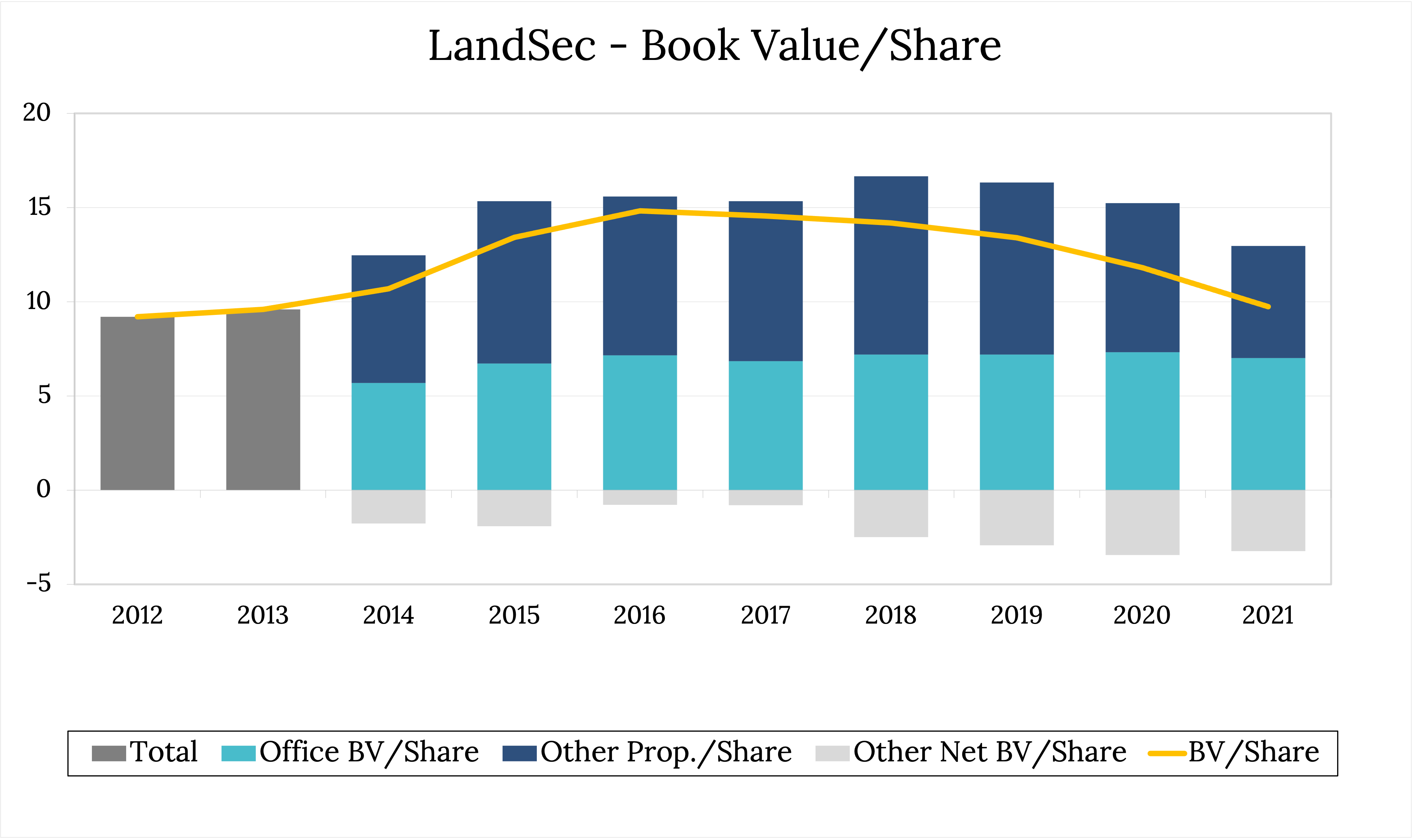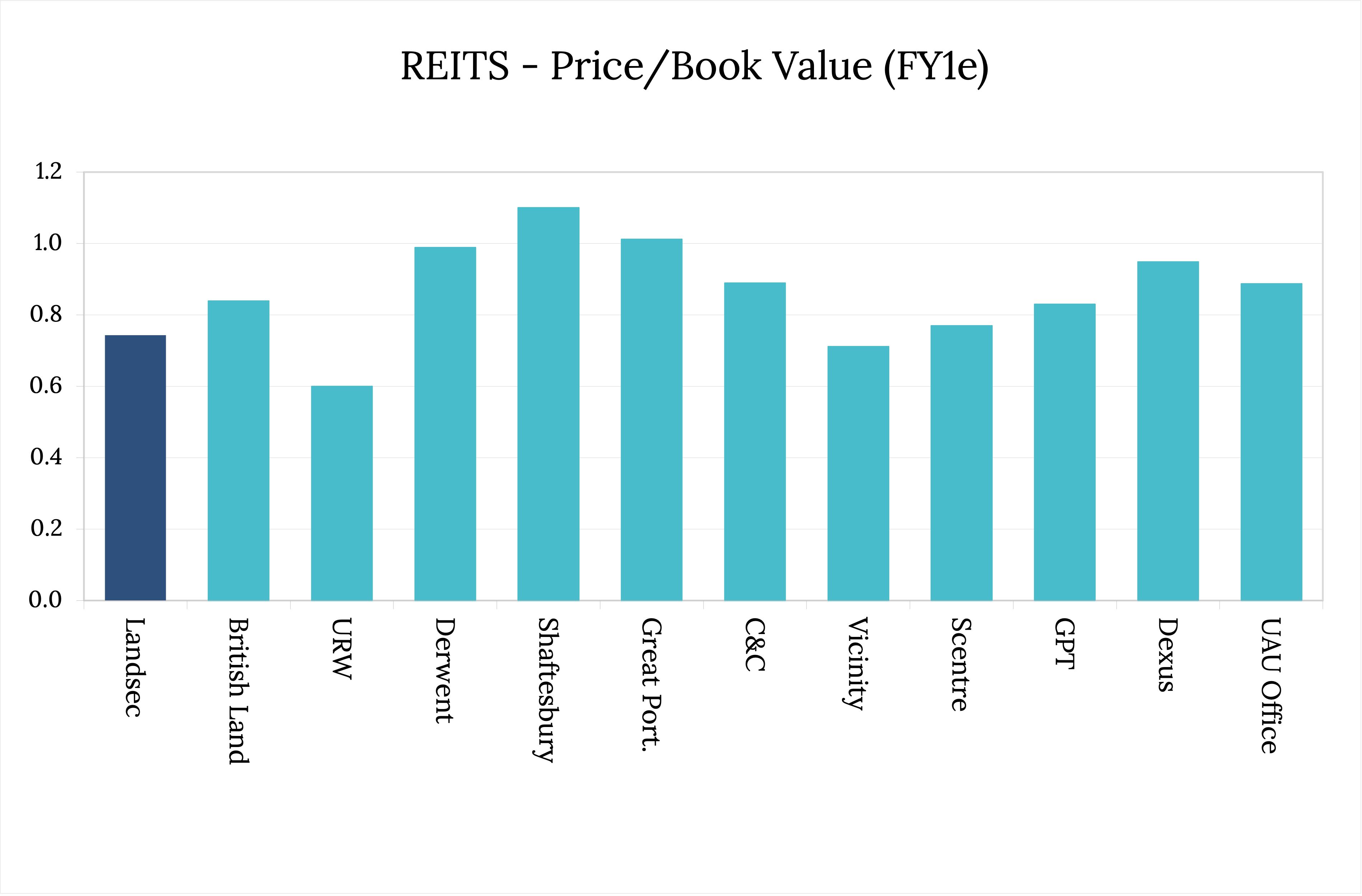Building wealth with REITs
In the heart of London, SW1 the Zig Zag building seems to have been carved from the surrounding towers like a scene from Christopher Nolan’s Inception. The building, created in 2016 with a 10-minute walk to St James Park, is one of the many belongings of UK-based property group, Landsec. With a world class asset base comprised largely of prime Central London office towers (~60%), we believe Landsec is one of the best run Real Estate Investment Trusts (REITs) globally and is a smaller but meaningful holding for our Fund.
Being a property owner means COVID-19 has significantly impacted Landsec’s business. For example, revenue profit (the company’s measure of net income) declined by ~40% in FY21 and property valuations fell by ~14%.
The net of this resulted in a ~17% decline in Book Value/Share (which is the key driver of shareholder value).
That said, the bulk of these impairments has occurred in the non-Office portfolio comprised of retail, leisure, and development assets. In fact, Office values have actually held up quite well through COVID.
It can also be argued, that after allowing for these significant impairments, the carrying value of assets more broadly is a lot more conservative, i.e., their accounting value reflects more accurately their true market value. This has been demonstrated by recent divestments such as Landsec’s sale of 1 & 2 New Ludgate, which sold at a premium to carrying value. New Ludgate is a 183,000 sq ft mixed office and retail asset with, coincidently, Australia’s own Commbank being one of the key tenants. New Ludgate’s carrying value was £546m and sold for £552m, allowing Landsec to book a ~£5m profit after tax.
Other London- based REITs have also been busy on the transactions front. For example, in July Derwent London sold its interest in Angel Square to New York-based property group, Tishman Speyer for £86.5m. While Derwent doesn’t disclose the exact carrying value of individual properties, we do know this was towards the upper end of carrying value ranges. If anything, it also suggests that there is growing appeal amongst international buyers for prime London real estate.
Furthermore, given meaningful impairments to non-Office assets, the quality of the overall asset mix is higher given ~60% now comprises Office properties.

The other positive news in recent months has been improving collection trends, driven pleasingly by non-Office assets.
However, despite the more ‘conservative’ carrying value of assets and recent improvements in business momentum, Landsec continues to trade at ~0.7x Book Value - a meaningful discount, making the stock look cheap in an absolute sense, versus peers, and versus what Landsec can sell its assets for in the private market (as demonstrated above by recent transactions).
We estimate that if the office assets are valued at ~95% of BV (consistent with other Office REITs) then we are getting the Retail/Leisure/Development portfolio for ~60% of BV.

Finally, given a Loan-Value Ratio of ~32% (a key measure of a REIT’s gearing), we think Landsec still has the balance sheet optionality to keep buying and developing prime assets to further drive shareholder returns.
Given the above, we think Landsec continues to represent a good investment opportunity for the Fund and one which reflects our belief that investors need to diversify their holdings, by sector, style return type and region.
3 topics

